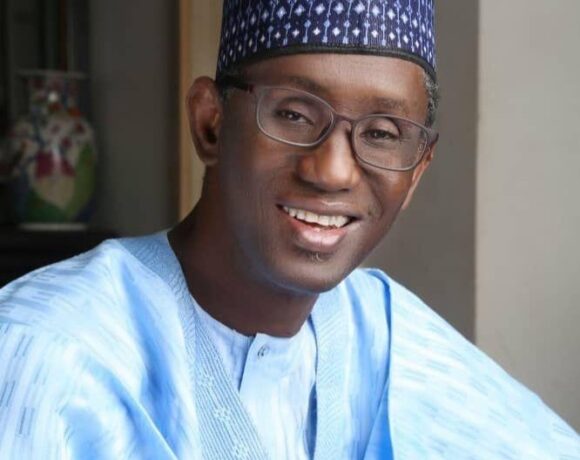Gov Lawal: How Banditry Can End in 2 Months, 56 Lives Lost to Accidents, More in Weekly Roundup

By Emmanuel Kwada
Nigeria has faced a cascade of crises, exposing deep-seated challenges in security, infrastructure, and governance. Zamfara State Governor Dauda Lawal made a bold claim, asserting he could eradicate banditry within two months if granted control over security agencies. Compounding the nation’s woes, over 56 lives were lost in preventable accidents. Meanwhile, economic pressures intensified with a 5% petrol tax and a 41% surge in kerosene prices amidst heavy accusations of governance lapses.
This week, we dive into the top stories dominating headlines, revealing a country navigating a complex web of insecurity, economic hardship, and resilience, as citizens demand accountability and solutions from leaders.
How I Can End Banditry in 2 Months, Zamfara Governor Dauda Lawal
I swear to God, I used to shed tears because we know the exact locations of these bandits. We see them wherever they move in Zamfara, but the soldiers can’t take orders from us; they must wait for orders from Abuja. If I were the one commanding them, we would’ve ended banditry in… pic.twitter.com/CRDhS8FCxC
— Abdul-Aziz Na’ibi Abubakar (@jrnaib2) September 4, 2025
Governor Dauda Lawal of Zamfara State has vowed to eradicate banditry within two months if granted full control over security agencies. In a viral video, Lawal declared, “I swear to God Almighty, if I have powers over security agencies, I will end banditry in two months.” He revealed that he tracks bandit leaders’ locations using his phone but is powerless to act, as security forces report to Abuja.
Lawal alleges that when vigilantes are deployed, they are ordered to retreat, hampering efforts. Despite equipping security with 150 patrol vehicles and recruiting 2,000 hunters, he claims politicization stalls progress. Lawal’s administration has urged federal cooperation to empower state-led operations, emphasizing that local knowledge and swift action could dismantle bandit networks effectively.
I swear to God Almighty, if I have powers over security agencies, I will end banditry in two months
Accidents Claim Over 56 Lives, Dozens Injured in Nigeria in Past Seven Days
Nigeria recorded over 56 deaths from accidents between August 29 and September 5, 2025. A boat accident in Niger State claimed 32 lives, dozens injured with many still missing when an overloaded vessel capsized near Gausawa, Borgu, after hitting a tree stump. Bandits killed Four, kidnap two in fresh attack on Kwara Community. In Enugu, 10 people died in multiple crashes on the Enugu-Port Harcourt Expressway due to a truck collision. Five bodies were found along Lagos’ riverbank in Oreta, Igbogbo.

NEMA officials evacuating Victim of Niger Boat accident
A family of three was chased to death by touts in Abuja, with three touts burned to ashes by mob at the spot, as the Federal Road Safety Corps (FRSC) launched weekly lectures to curb reckless driving.
Kerosene Price Surge and Cooking Gas Price Drop
The price of household kerosene in Nigeria surged by 41% in June 2025 compared to the previous year, intensifying the cost-of-living crisis, according to the National Bureau of Statistics. This sharp increase has strained households reliant on kerosene for cooking and lighting. Conversely, cooking gas prices dropped, offering some relief to consumers.

Nigerians on queue to refill their gas cylinder
The decline, though not quantified, reflects fluctuating energy costs. These shifts exacerbate economic pressures amid rising inflation and fuel subsidy removal, prompting calls for government intervention to stabilize energy prices and support vulnerable populations.
Northern Elders Urge Tinubu to Declare Emergency on Insecurity
Northern elders have called on President Bola Tinubu to declare a state of emergency on insecurity in Northern Nigeria, citing escalating violence. The region faces persistent threats from Herdsmen, Boko Haram, banditry, and communal clashes, with recent attacks in Plateau and Benue states highlighting the crisis.
They argue that decisive action, including enhanced security measures, improved intelligence, is critical to restoring stability.
Meanwhile, President Tinubu hinted at creating state police to curb the menace, stating, “We’ll defeat insecurity; we must not fail,” during a September 2025 address. However, Northern youth opposed the state police proposal, citing risks of political abuse, regional marginalization, and inadequate funding, fearing it could exacerbate tensions rather than resolve the security crisis.
The federal government is empowering bandits with monthly payments and food supplies
Former Kaduna State Governor Mallam Nasir El-Rufai sparked controversy, alleging the federal government is empowering bandits with monthly payments and food supplies under a “kiss-the-bandits” policy driven by the Office of the National Security Adviser (NSA). The NSA, led by Nuhu Ribadu, swiftly denied these claims, calling them “false and baseless” and emphasizing military successes against banditry.
Meanwhile, the Department of State Services arraigned nine prime suspects linked to killings in Benue and Plateau states, signaling efforts to address impunity. Nigerians demand urgent action to curb the rising tide of violence.
Tinubu Begins Annual Leave, Departs for Europe
JUST IN: President Bola Tinubu has departed Abuja for a working vacation in Europe, as part of his 2025 annual leave.🇳🇬❤️ pic.twitter.com/GDhq1z4W8R
— A. Ayofe (@abdullahayofel) September 4, 2025
President Bola Tinubu departed Abuja on September 4, 2025, for a 10-day working vacation in Europe, part of his annual leave. The trip, announced by the presidency, includes engagements to advance Nigeria’s economic and diplomatic interests. Tinubu’s departure comes amid domestic challenges, including economic strain and insecurity. Critics question the timing, given ongoing crises, while supporters argue it reflects strategic multitasking. The presidency emphasized Tinubu’s commitment to governance during the trip, with plans to address key issues upon his return.
Nigerians Fume Over 5% VAT on Petrol
Public outrage erupted over the federal government’s introduction of a 5% Value Added Tax (VAT) on petrol in 2025, further inflating fuel costs. The policy, implemented amid a 400% petrol price hike since subsidy removal in 2023, has deepened economic hardship for Nigerians.
Citizens and civil society groups criticized the move, arguing it burdens the poor disproportionately. The government defends the tax as necessary for revenue generation, but protests and social media campaigns reflect widespread discontent. Analysts warn of potential unrest if economic relief measures are not prioritized.
Taiwo Oyedele clarifies the new 5% fuel tax. Revenue will be used for transport infrastructure to cut logistics costs & ease inflation. pic.twitter.com/4BjQWT8RTA
— Nairametrics (@Nairametrics) September 5, 2025
Meanwhile, Taiwo Oyedele, Chairman of the Presidential Committee on Fiscal Policy and Tax Reforms, has clarified that the 5% fuel surcharge, effective January 2026 under the Nigeria Tax Administration Act, aims to fund transport infrastructure improvements. This initiative is designed to reduce logistics and transportation costs, ultimately easing inflationary pressures on Nigerians. Oyedele emphasized that the revenue will be dedicated to enhancing infrastructure, countering misinformation about the tax’s purpose, and promoting economic stability.
FG Seeks $1.75bn World Bank Loan
The federal government is seeking a $1.75 billion loan from the World Bank to address Nigeria’s fiscal challenges and fund development projects. The loan aims to support infrastructure, healthcare, and economic reforms amid declining oil revenues.
Critics question the government’s borrowing strategy, citing Nigeria’s rising debt profile and repayment concerns. Supporters argue the funds are critical for economic recovery and diversification. The proposal has sparked debates on fiscal responsibility, with calls for transparency in loan utilization to ensure tangible benefits for Nigerians.
WAEC Transitions to CBT, Ministry Launches Teacher Program
The West African Examinations Council (WAEC) announced a transition to Computer-Based Testing (CBT) for its examinations, aiming to enhance efficiency and security. The move aligns with global digital trends but raises concerns about accessibility in rural areas.
Concurrently, the Ministry of Education launched a teacher training program to improve educational quality. The initiative focuses on equipping educators with modern skills to boost student outcomes. Stakeholders welcomed the reforms but urged the government to address infrastructure gaps, such as unreliable electricity and internet, to ensure successful implementation.

Simon Ekpa
Biafran Separatist Leader Sentenced in Finland
Simon Ekpa, an exiled Biafran separatist leader, was sentenced to six years in prison by a Finnish court on September 3, 2025, for terrorism, tax fraud, and ethical violations. Ekpa’s activities, including inciting violence in Nigeria’s southeast, have fueled separatist tensions.
The conviction marks a significant development in Nigeria’s efforts to curb separatist movements. The Nigerian government hailed the verdict, while supporters of Ekpa protested, claiming political persecution. The case underscores the complex interplay of diaspora activism and Nigeria’s security challenges.
Sign up for The Insight Newsletter
Get in-depth, research and data-based interpretative reports from around Nigeria.



